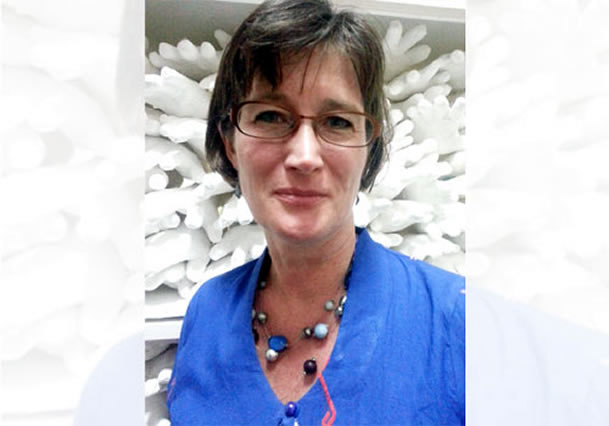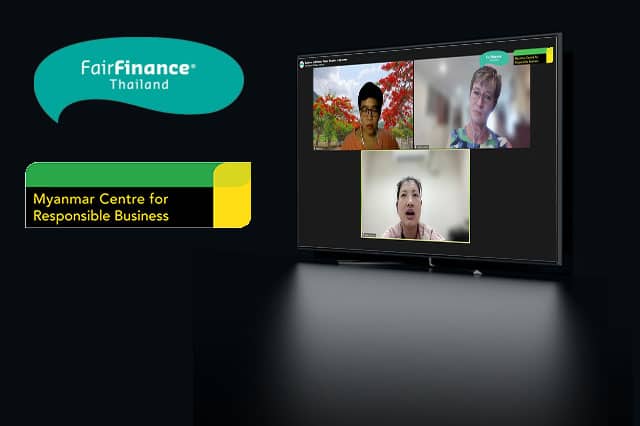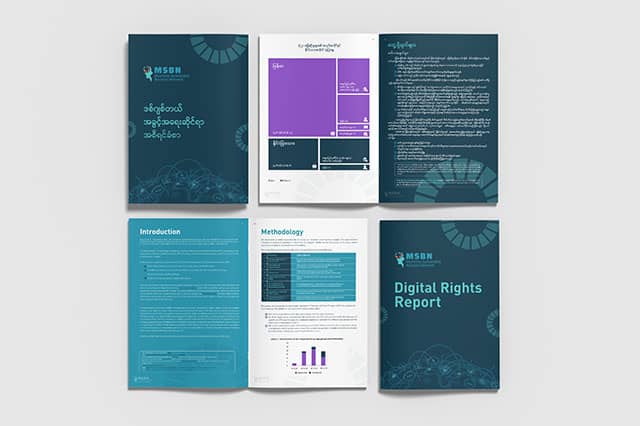Former ambassador reflects on past while eyeing the future

This interview was originally published on mmtimes.com
Vicky Bowman’s vision for MCRB is gaining influence not because it is a watchdog with bite but because it can mobilise to provide the right advice to the right people at the right time to make the right connections, which is her favourite activity: connecting people to information and to one another.
When Vicky Bowman, Director of the Myanmar Centre for Responsible Business (MCRB) presented her credentials to Senior General Than Shwe on December 31, 2002, she used a Burmese proverb to explain how happy she was to take up the role of British ambassador, telling him – in Burmese – that her posting to Myanmar was like sending a betel-nut lover to Taungoo.
“Afterward I was told that the senior general said it was only credentials ceremony he’d enjoyed that year,” Ms Bowman said.
Much earlier, from 1990 to 1993, Ms Bowman had served as the second secretary at the British embassy in Yangon, after studying Burmese language in London and Mandalay.
She is also well-versed in Myanmar’s history and the unique circumstances that shaped the country into what it is today – and will continue to shape it into the future.
“I love this country because the Myanmar people are so hospitable,” she said. “When you speak Burmese and people see you’re interested in their culture, they help you understand what makes the country tick, and that makes it so much more rewarding.”
She is particularly attached to Mandalay because of the role it has played as an intellectual and cultural hub during the past century.
“I love the strength of social capital you feel in Mandalay, which has survived through colonisation, world war and dictatorship. I’m talking about the networks that connect intellectuals, religious and charity groups, and businesspeople,” Ms Bowman said.
She said she loves the sense that there are Mandalay families who have been pillars of the community since royal times.
“I don’t want modernisation and urban migration to result in Mandalay, or other places in Myanmar, losing that sense of community and culture, in the way that many other countries have,” she said.
During her interview with The Myanmar Times, Ms Bowman sipped a cold yoghurt drink at Shwe Ywet Hla yoghurt shop on 73rd Street – owned by her friend of almost 25 years, Ma Too – and reflected on changes in Myanmar since her first stay in the Mandalay when she came to learn Burmese in 1990.
“The main positive change is freedom of speech. It feels like night and day,” Ms Bowman said.
“It’s a major shift of gear in accountability. The fact that civil society – including the media and parliament – now has an audible and powerful voice has been a wakeup call for companies. That includes foreign companies who had been doing business for years here without worrying about what stakeholders thought. We need more of it.”
While she welcomes the reforms, like others she has felt the momentum slowing over the past year.
“We are seeing both backward steps and forward steps,” she said.
During her two diplomatic postings, and in particular during her time as ambassador, Ms Bowman said debate raged about whether foreign investment in Myanmar could be done responsibly and whether it could help transform the country.
“Ten years on, the situation has changed to the extent that there is a widespread consensus that it is right to encourage responsible investment here,” she said, adding that this is why she is now working with the Yangon-based Myanmar Centre for Responsible Business (MCRB).
The centre is the result of a collaboration between the UK-based Institute for Human Rights and Business and the Danish Institute for Human Rights. It receives funding from the governments of the United Kingdom, Denmark, Norway, Switzerland, the Netherlands and Ireland.
Established in 2013, the MCRB (www.myanmar-responsiblebusiness.org) describes itself as providing “an effective and legitimate platform for the creation of knowledge, capacity and dialogue concerning responsible business in Myanmar, based on local needs and international standards, which results in more responsible business practices”.
For Ms Bowman, responsible business means businesses that abide by international standards, protect the environment, pay taxes, refuse to pay bribes, treat their workforce with respect and “create shared value” – that is, making a profit while addressing societal problems.
This is true not only for foreign investors but also for Myanmar companies.
“One of the biggest challenges is the business climate within which Myanmar companies operate, and the habits it has engendered,” she said.
“There are laws, but they are unclear, unknown and unenforced, or can be ignored. Many companies recognise that to be responsible means paying their workers a decent wage, not forcing them to work excessive hours, putting them on contracts, keeping them safe. But they worry that their competitors will not do those things and will undercut them and the government won’t enforce the rules.”
She said making progress means businesses need to take the initiative to be responsible, but at the same time the government must “adopt and enforce laws transparently on a level playing field”.
Ms Bowman welcomes the fact that the tax department is starting to become more transparent, even publishing a list of top taxpayers, and that there is growing recognition that paying tax is the duty of a responsible business.
But Bowman notes that even with the best intentions in the world, continued corruption makes this challenging.
“When a company goes to pay tax, it should be allowed to pay the tax it legally owes. What often happens instead is that the tax official reduces the bill by 50 percent, demands 25pc on the side, and then won’t issue the tax clearance unless the taxpayer complies,” she said.
Ms Bowman’s vision for MCRB is gaining influence not because it is a watchdog with bite but because it can mobilise to provide the right advice to the right people at the right time to make the right connections, which is her favourite activity: connecting people to information and to one another.
“We provide advice to business, government and civil society groups. We put them in touch with one another, collectively and individually. We can help them navigate what can be a tangled thicket of international standards on responsible business, which is very difficult to understand if you have not lived in that world,” she said, adding that she worked two years for global mining company Rio Tinto before returning to Myanmar in 2013.
“In the end, you have to remember that businesses are owned by and employ people, and most of those people want to do the right thing and be seen to do the right thing. You can build on that to effect change,” she said.
Another encouraging factor, she said, is that Myanmar ranked second in a 2013 survey of the world’s most generous nations.
“Based on three measures – including helping strangers, volunteering and what percentage of the society makes donations – Burma comes out as the second most generous nation in the world,” she said.
It is that underlying good nature that Ms Bowman wants to tap into with the Myanmar Centre for Responsible Business.
 English
English မြန်မာ
မြန်မာ မြန်မာ (unicode)
မြန်မာ (unicode)










